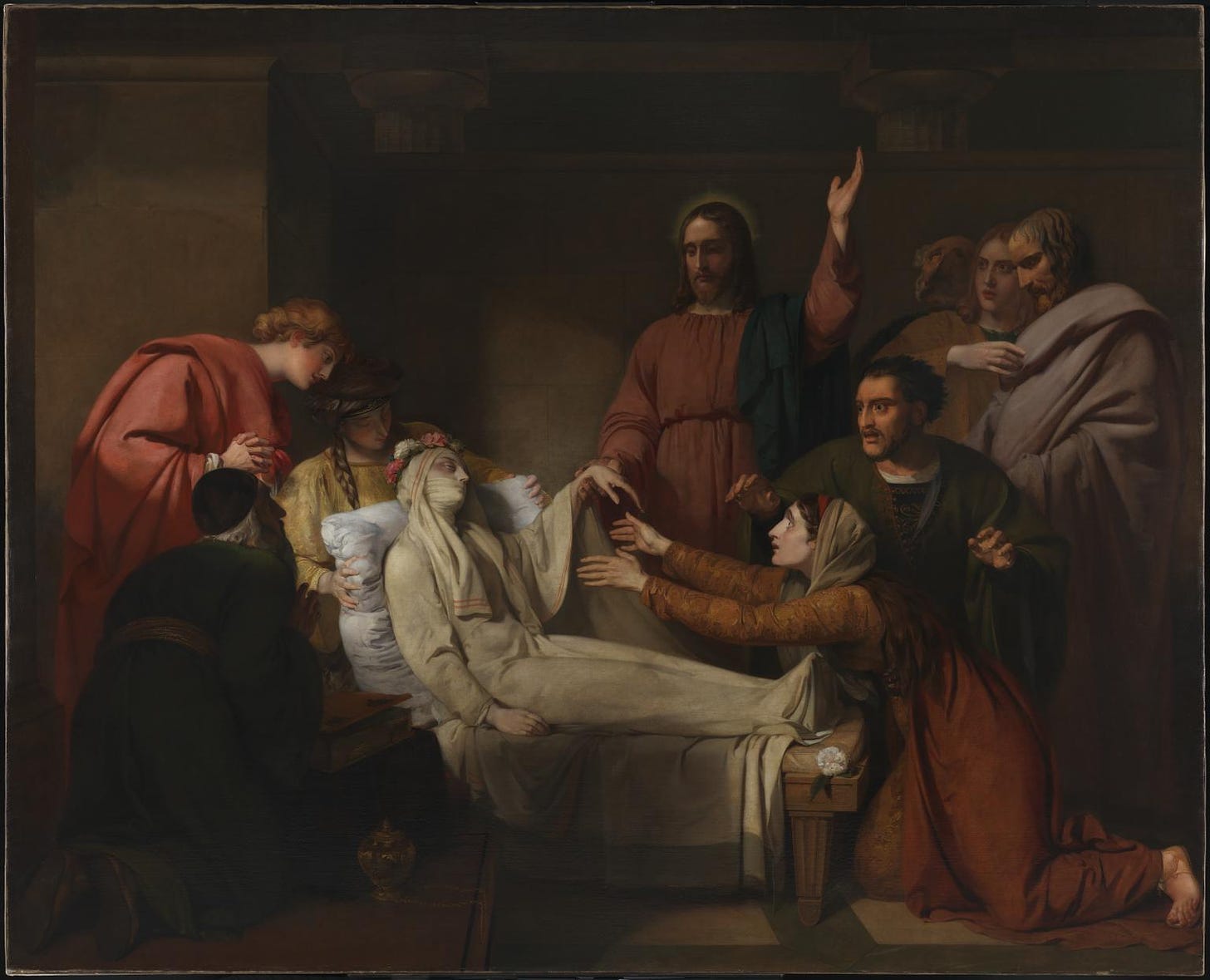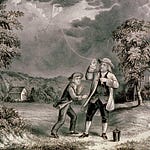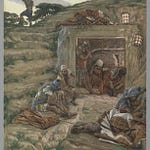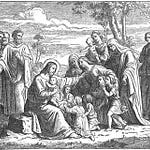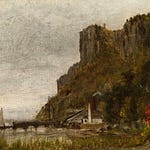Our Easter discount continues through April 15th, with 20% off all upgrades, gift, and new subscriptions at Word & Song.
Jesus had put everybody out of the room except for a couple of his disciples. A little girl was lying on the bed. She was asleep — in the sleep of death. The people in the house had called for Jesus to come and make her well, but she passed away before he got there. So when he said, “She is not dead, but only sleeping,” they got angry and they ridiculed him. Think of that for a moment. Instead of seizing on the hope Jesus was offering, they got angry; they did not want to look like fools, even if it meant that the little girl might be wakened again. But Jesus took her by the hand and said, in Aramaic, “Talitha, quwm,” which means, “Little girl,” or maybe better, “Little darling, rise.” Which is our Word of the Week.
It’s a powerful word. Here we who speak English are sometimes encumbered by our wealth of words. We don’t say to somebody, “Rise,” unless it’s formal, or unless we’re being in jest, as when my mother would call out to us, “Rise and shine!” We say, “Get up.” And that’s what a lot of translations have Jesus saying to the little girl. He’s telling her to “get up.” It’s rather like what you’d say in Greek all through Eastertide: “Christos anesti!” — which literally means, “Christ has stood up!” The anastasis is just that: the standing up, the resurrection. In German it’s the same way: die Auferstehung, the up-again-standing. That’s most fit for Easter. We can hardly suppose that Jesus limped and halted out of the tomb. He stood up, triumphant. He is risen.
Now, in Hebrew, that same word that Jesus uses to tell the girl to rise from her bed of death is what Job uses in a most mysterious and beautiful passage. A lot of commentators have tried to scrub the mystery and the beauty away, telling us that Job is looking forward to some avenger of blood who will vindicate him after he is gone. But this is what the Hebrew literally says: “I know that my Redeemer lives, and that in the end he shall rise upon the dust.” Of course, rise here means stand, but it is not the usual word for standing. It means that he shall rise and stand. The word for dust here, usually translated as earth, a bit misleadingly, is the same word that God has used when he said to Adam that he must die and return to the dust from which he was taken, “For dust thou art, and unto dust thou shalt return.” Job cannot mean that he will see this yet unknown Redeemer when he is old, because the language suggests the end of things, just as the word for dust brings us back to the beginning and the fall of man. What did the poet foresee? What did he have an inkling of? Job goes on to say that he will in his own flesh, even though his inward parts should all be consumed, look upon God, literally taking hold of him with his eyes. That is our hope, in Christ.
We’re not sure where the word rise comes from. It doesn’t seem to have cousins outside of the German languages. We do know that the verb raise comes from it; it’s a causative. When you raise someone, you make him rise. Which brings to mind what Jesus said to Martha, grieving because her brother Lazarus had died; had “fallen asleep,” as Jesus said to his disciples, as he had said of the little girl. “Your brother shall rise again,” said Jesus. Certainly it is the same word he used for the girl. It is the word Job used. Martha replied that she knew he would rise again in the rising at the last day. For Martha and her family held with the Pharisees, who believed in the rising. But Jesus said to her, “I AM the RISING and the LIFE.” He is the only Redeemer. And we believe that we shall grasp him with our eyes, we in our own flesh even though time shall have rendered our bodies into dust; we shall see him. He lives. He is the life. He has gotten up from the sleep of death. He is risen indeed.
A blessed Eastertide to you and to all your loved ones, from Debra and me at Word and Song!
Word & Song by Anthony Esolen is an online magazine devoted to reclaiming the good, the beautiful, and the true. We publish six essays each week, on words, classic hymn, poems, films, and popular songs, as well a weekly podcast, alternately Poetry Aloud or Anthony Esolen Speaks. To support this project, please join us as a free or paid subscriber.
From now through Sunday, April 15 2024 enjoy a 20% discount on gift subscriptions to Word & Song. Click the photo above or the button below to visit the discount offer page.
Listen to this episode with a 7-day free trial
Subscribe to Word & Song by Anthony Esolen to listen to this post and get 7 days of free access to the full post archives.




